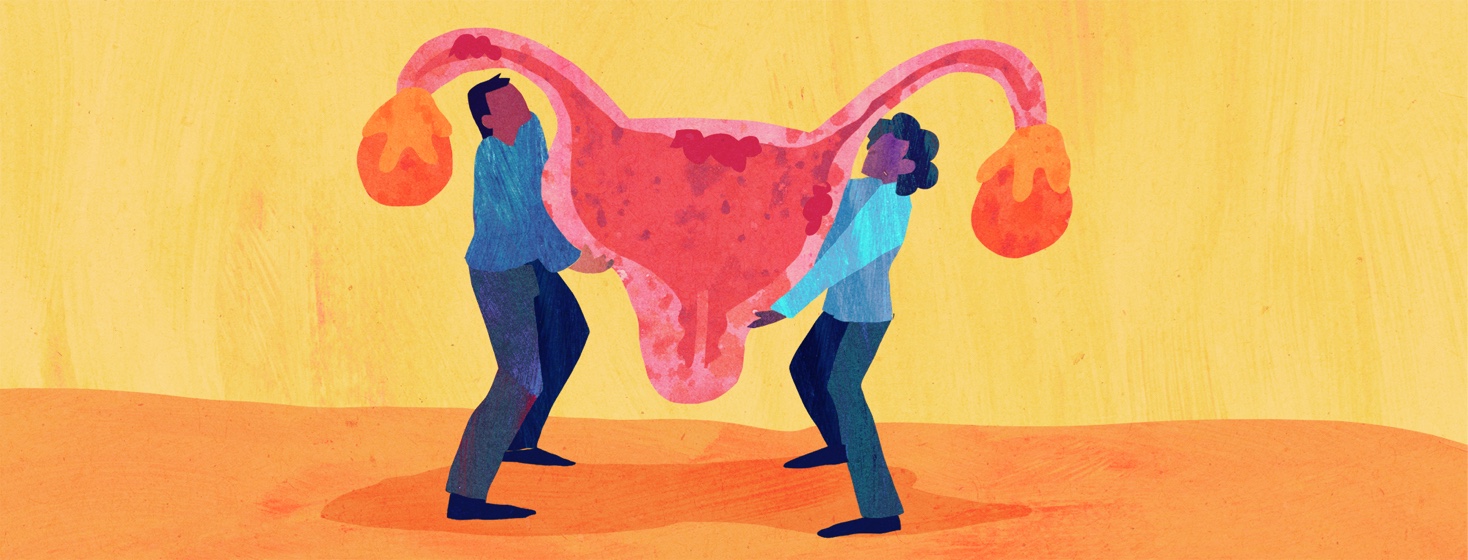What Does Supporting Someone with Endometriosis Look Like?
Supporting someone who has a chronic illness like endometriosis means different things for different people. It can mean physical support to cover when symptoms are bad, or emotional support when everything gets too much. For anyone at the start of their endometriosis journey with a partner, here’s what supporting someone with endometriosis looks like to me.
Listening
Of the utmost importance is listening to the person suffering with endometriosis. Doing all of the reading and research you want can be helpful, but it won’t replace listening and hearing the experiences that person is going through. Base everything else you do around these conversations. If your partner needs more support in one area or is feeling smothered in another, listen and adjust accordingly.
Learning
Managing endometriosis requires a lot of learning. There is learning about the condition, which is still being understood and new research is coming to light all the time, but there is also learning about that person’s individual body and their experiences with endometriosis. Do your best to keep a fresh understanding of the condition, but don’t let something you’ve read online negate your partner’s experiences and opinions.
Helping out
Taking some of the weight of your partner's shoulders is one of the easiest ways to support them. Endometriosis and its associated symptoms can take a physical and mental toll on your partner, and anyway that you can make life a little easier by cooking, doing the dishes, picking the children up etc., will be appreciated.
Waking up and staying up
For me, supporting my partner with endometriosis has meant a lot of disturbed sleep. Pain during the night with her bladder and other associated symptoms has kept my partner awake a lot over the years, and supporting her means waking up when she is in a lot of pain and staying up with her. Sometimes I’ll get a hot water bottle or some pain medication, others she just needs to have her spirits lifted and be kept company, others she doesn’t want me at all and tells me to go back to sleep. The important thing is I don’t roll over and try to fall asleep when I see she’s up. Wake up (if work and life commitments allow) and see if you can help them.
Sacrificing
By sacrificing, I don’t mean drain yourself or empty your own cup to fill someone else’s – that won’t help anybody. What I do mean is if your partner has to cancel plans, or avoid sugary foods, or cut out gluten, do it with them. There are plenty of foods that I have no problem eating (and love) that I don’t eat much of because my partner chooses to manage her endometriosis. I can still eat these foods from time to time, but I don’t mind depriving myself of them too to show solidarity and support for my partner’s journey. It makes it feel less isolating for her.
Monitoring and adjusting
Supporting your partner in managing their endometriosis is an ever-evolving process. As they learn about what suits and doesn’t suit their body, how far they can push it, what foods trigger pain etc., the way they manage their endometriosis will change. To support as best we can, it’s important that we engage in, remember, and encourage this development. Rather than being a passive onlooker to your partner’s journey, be an active participant.

Join the conversation